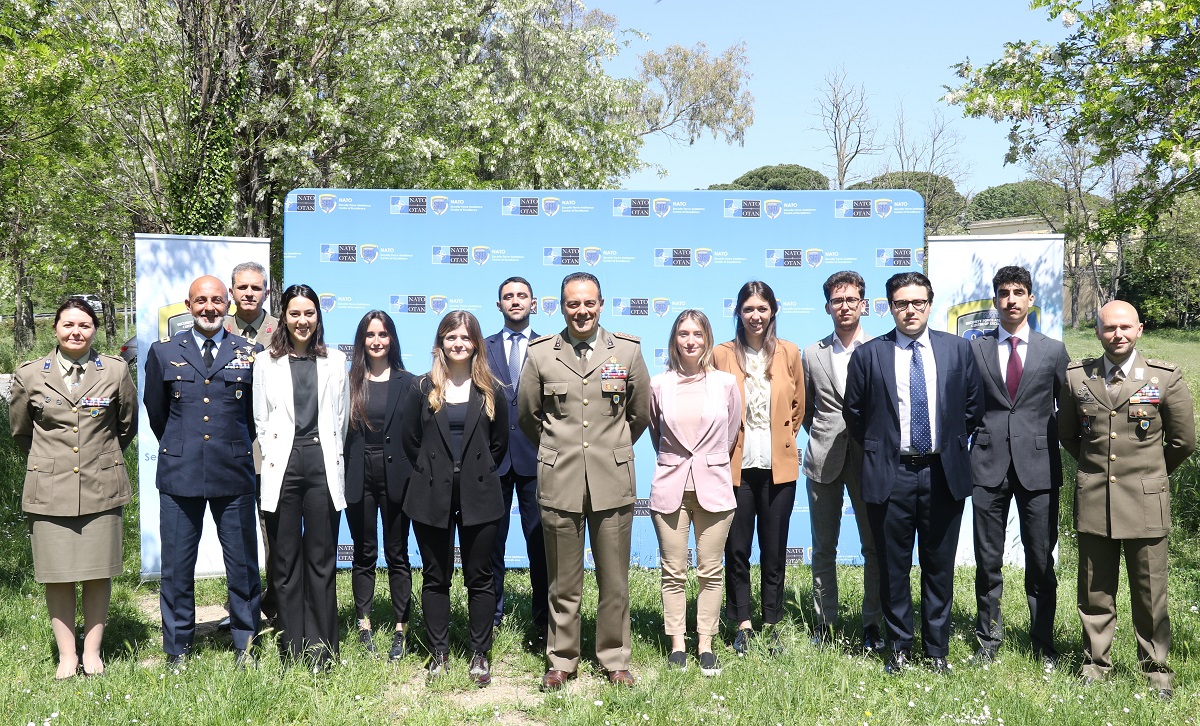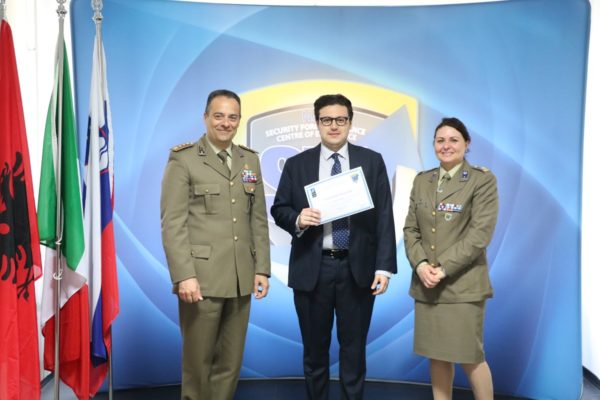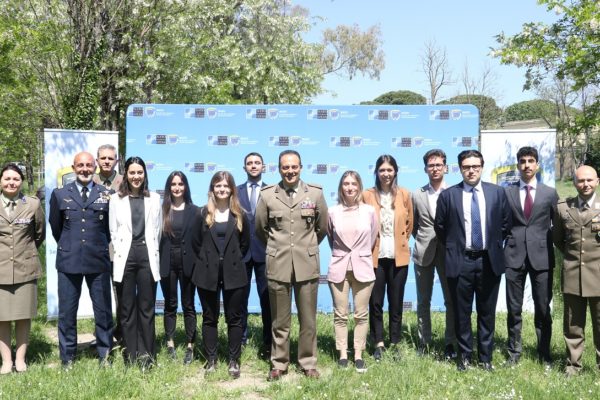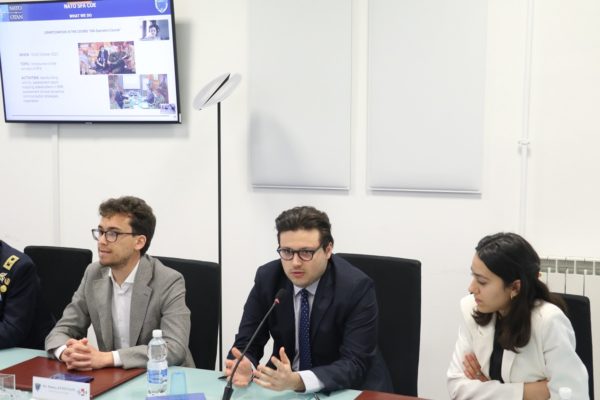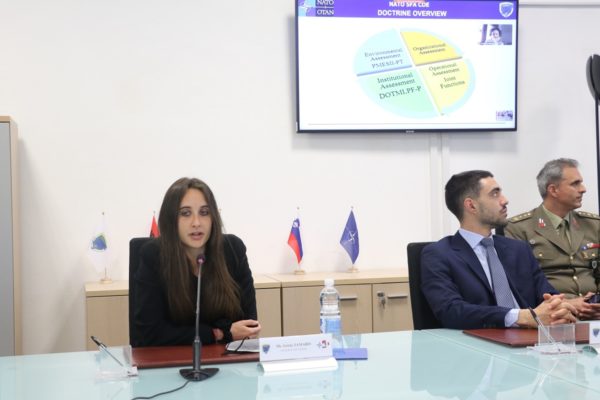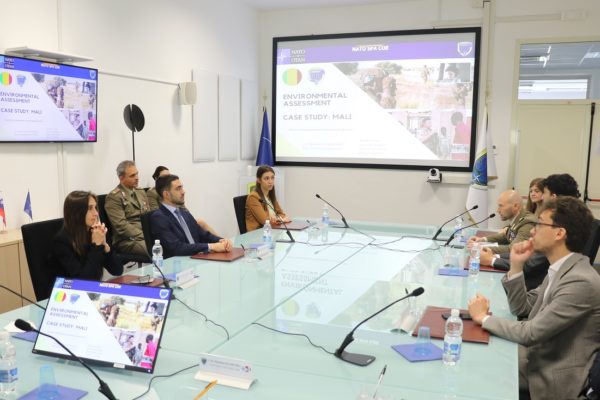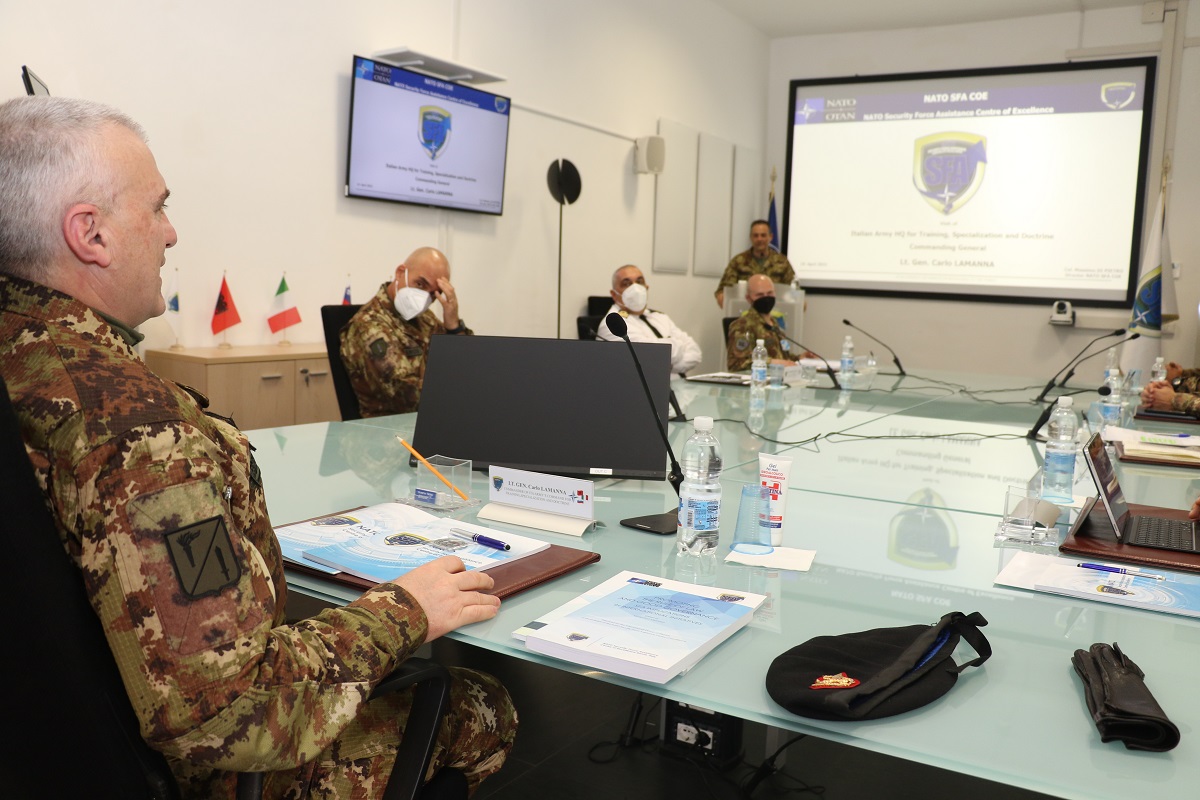The official presentation of the Internship projects approved in the COE Work Program for the year 2022 took place on the 2nd of May at the NATO Security Force Assistance Centre of Excellence (NATO SFA COE). Nine interns selected following the agreements with the LUISS and LUMSA Universities and through applications from students who have already graduated from other Italian and foreign universities, participated in the event accompanied by their respective tutors from the Centre.
The Internship agreements, recently signed by the NATO SFA COE with the University of Verona, with the Albanian Defence Academy and with the University of Ljubljana, offer students and researchers the opportunity to acquire specific NATO skills, interacting with high profile experts from the civilian and military world of international organizations that collaborate with the COE.
During his speech the Director, Col. Massimo Di Pietro, highlighted the importance of the initiative and the commitment of the Centre in promoting cooperation with the academic world as much as possible, investing in the younger generations of researchers. Sharing new experiences and perspectives offers greater originality to the Centre’s products and an extraordinary moment of growth not only for students, but also for the multinational and joint staff of the COE.
Subsequently, the trainees explained in detail their role in the individual projects of the NATO SFA COE. They included:
– participation in the organization and subsequent drafting of the results from the seminar carried out in collaboration with the Religion & Security Council (RSC) which analyses, with a group of authoritative speakers, the potential of interreligious dialogue as a factor for mitigating or resolving interethnic conflicts in the MENA area (Middle East and North Africa);
– support for the new COE editorial project, entitled “The Insights on Strategic Advising for SFA”, where international experts provide useful tools and practical models to conduct assistance activities at an institutional and strategic level in the context of Defence Capacity Building missions and Institutional Building;
– contribution to the implementation of both the NATO SFA COE seminar, on the requirements and skills that the Advisor must have in the interaction with Local Forces, and the courses that are part of the Centre’s annual training offer.
The event is a further confirmation for the NATO SFA COE of the great value of collaboration and integration between the civilian and military world and of the importance of favouring the multidisciplinary approach in the study of the complex dynamics inherent to SFA.








